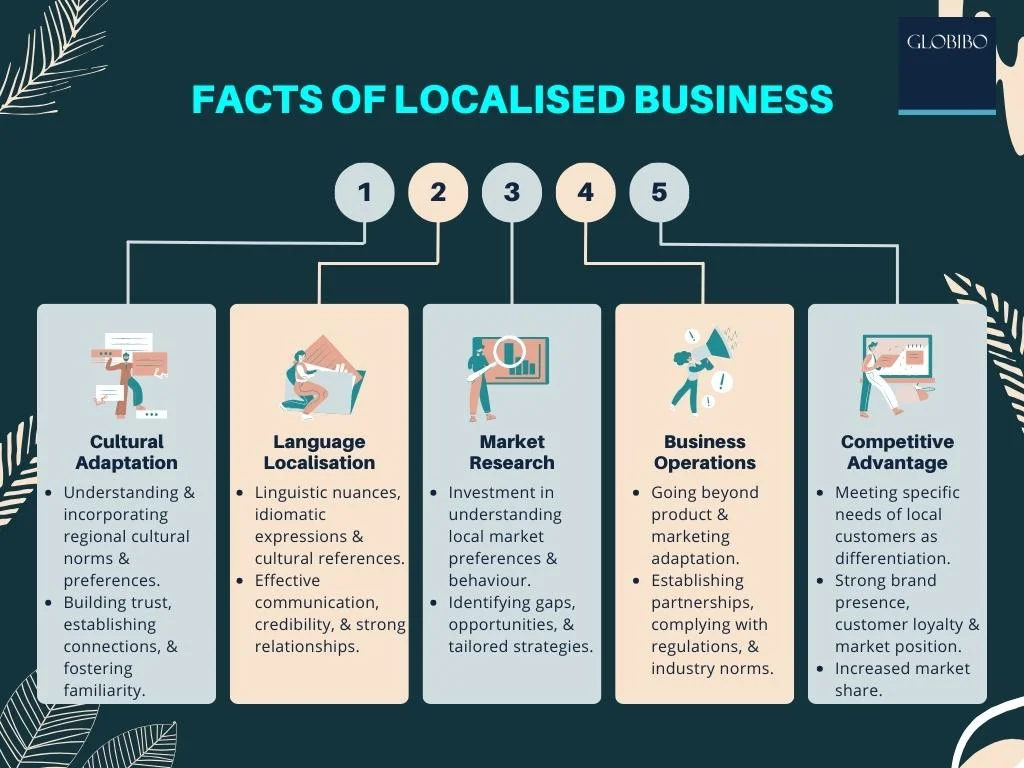Introduction
One of the fundamental aspects of localized business is cultural adaptation. Different regions and countries have distinct cultural norms, values, and preferences that influence consumer behavior. Localized businesses invest in understanding the local culture and tailor their offerings accordingly. This may involve adjusting product features, packaging, branding, and marketing messages to resonate with the target audience. By embracing cultural adaptation, businesses can build trust, establish a connection with customers, and create a sense of familiarity, ultimately increasing their chances of success in the local market.
Language Localization
Language plays a pivotal role in localized business. Adapting marketing materials, product descriptions, and customer support to the local language is crucial for effective communication with customers. Language localization involves not only translation but also considering linguistic nuances, idiomatic expressions, and cultural references. By speaking the language of the local customers, businesses can convey their messages accurately, build credibility, and foster strong relationships with the target market.
Market Research and Customer Insights
Localized businesses invest heavily in market research to gain a deep understanding of the target market. This involves analyzing customer preferences, behavior, and purchasing patterns specific to the local region. By conducting comprehensive market research, businesses can identify gaps in the market, uncover opportunities, and align their products and services with the needs and desires of local customers. Customer insights gathered through market research enable businesses to make informed decisions and develop tailored strategies to meet the unique demands of each market they operate.
Adaptation of Business Operations
Localized business goes beyond product adaptation and marketing strategies; it also involves adapting business operations to suit local market requirements. This may include establishing local partnerships, setting up distribution networks, complying with local regulations and legal frameworks, and adhering to industry-specific norms. Adapting business operations ensures smooth market entry, builds trust with stakeholders, and demonstrates a commitment to operating in alignment with local practices and expectations.
Competitive Advantage
Localized businesses gain a competitive advantage by understanding and meeting the specific needs of local customers. By tailoring their offerings and marketing messages to align with local preferences, they differentiate themselves from competitors who adopt a standardized, one-size-fits-all approach. Localized businesses can create a strong brand presence, build customer loyalty, and position themselves as the go-to choice within the local market. This competitive advantage increases market share and enhances profitability in each region.
Conclusion
Localized business is a strategic approach that recognizes the importance of adapting products, services, and marketing strategies to suit local markets. By embracing cultural adaptation, language localization, conducting thorough market research, adapting business operations, and gaining a competitive advantage, businesses can successfully penetrate new markets, build strong customer relationships, and establish a global presence. Localized business is a key driver of success in the global marketplace, enabling businesses to connect with customers on a deeper level and drive sustainable growth in diverse regions around the world.


